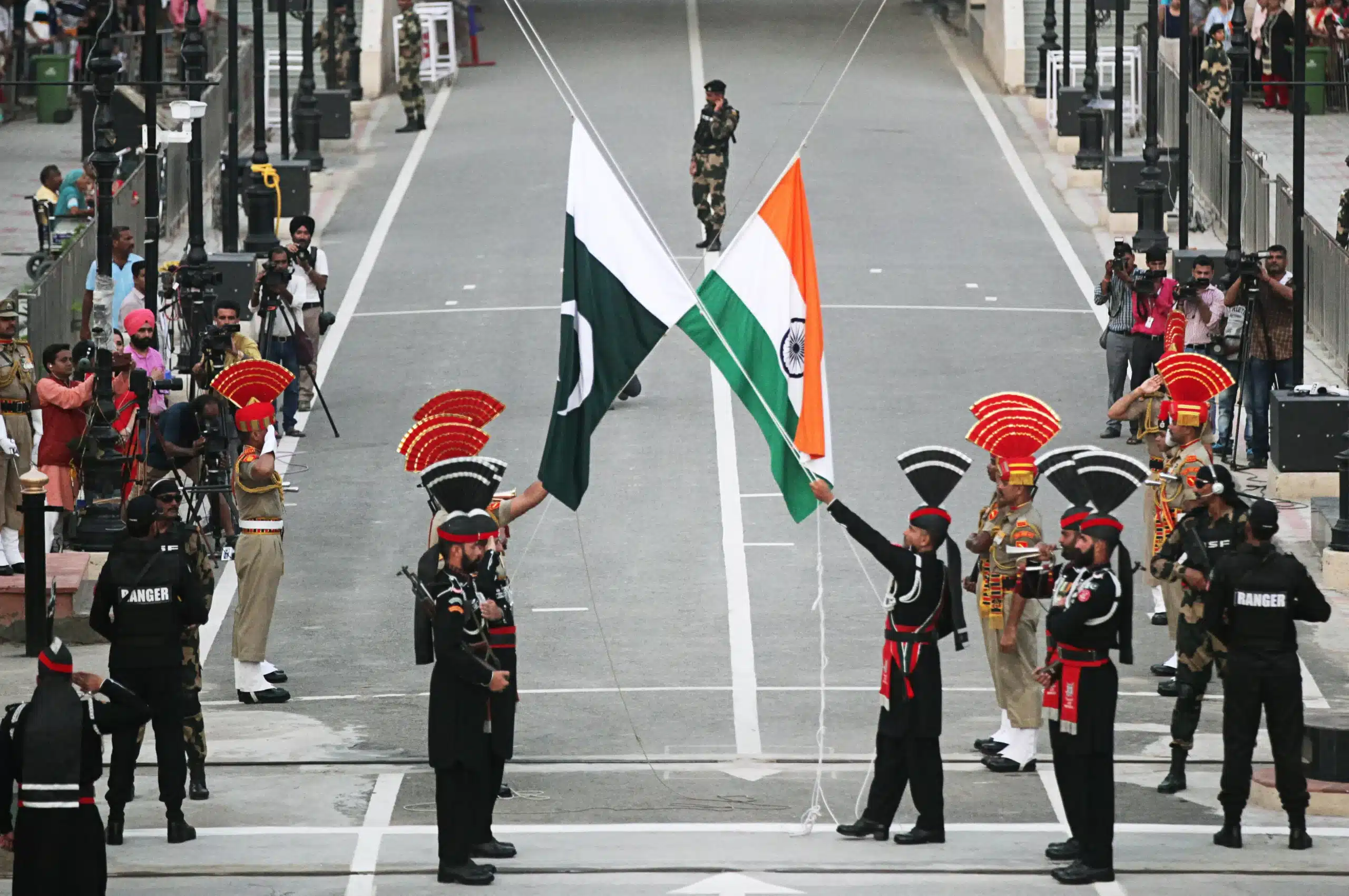Pakistan-India ties are amidst a region plagued by destabilization, spanning from religious fundamentalism to cultural indifference, resulting in widespread regional discord and disharmony. Everything is in limbo and disturbed to the core, requiring an imminent reset.
The Pakistan-India question is forever ingrained in our collective conscience. However, peaceful coexistence seems more distant than ever with the rise of Hindutva in neighboring India.
The way they have attempted to rewrite history and erase the Muslim past serves as a case study for students of international relations who have witnessed numerous upheavals and untoward events in the region and beyond.
Also Read: The Myth of Indian Secularism
As Pakistan fights militancy on its western borders, hurdles are placed in its way, prolonging its fight against terrorism and making it more costly. Continuous support from India to outlawed terror groups enables them to wage a low-scale insurgency, escalating the situation and putting us in a state of constant dilemma. Hence, it is imperative to engage with India more aggressively. Recently, India has intensified its diplomatic rhetoric against Pakistan, seeking to isolate it in the international community.
Pakistan, traditionally a Western ally after signing the Southeast Asia Treaty Organization (SEATO) and Central Treaty Organization (CENTO) pacts to check the eastward expansion of communism, now seems perturbed by India taking its place at the expense of Pakistan. Pakistan had played a pivotal role in extending Western policies and curtailing the spread of communism, among many shared goals. However, new realities emerged post-9/11, particularly with China becoming the sole counterweight to the West. The West is now aligning with India, hoping to counter the influence of China in the region.
![Leaders of SEATO nations posing for a portrait during the Manila Conference in 1966. [Frank Wolfe/Lyndon B. Johnson Library Photo]](https://southasiatimes.org/wp-content/uploads/2024/03/SEATO-nations-leaders-portrait-Manila-Conference-1966-1024x1024.webp)
With lines drawn and true colors shown by respective quarters, immediate cessation of hostilities seems unlikely. However, remaining unreceptive and dormant is not an option. It is only a matter of time before any eventuality poses serious implications for the security establishments of both nations, which have traditionally considered themselves rivals since partition.
Thawing relations are essential for alleviating poverty and ending lawlessness in the region, plagued by various other societal issues. The 1.75 billion people do not deserve perpetual conflict and hate; they need healthcare, education, employment, respectable accommodation, and stable prices. Achieving this requires conflict resolution and a pledge of nonaggression, which have been elusive for almost millennia.
However, the Bharatiya Janata Party (BJP) is more prone to instigate communal animosity, permeating from Indian borders and becoming an international concern. They are desecrating the Muslim historical landmarks and discriminating against Muslims in everyday opportunities.
Minority segments of the Indian society are targeted on petty issues, and incidents such as lynching on suspicion of carrying beef portray a sorry state of affairs, resembling an apartheid state where minority lives are in danger.
Pakistan has its own sensitivities, and efforts for good relations are frustrated by baseless accusations from India, portraying Pakistan as the sole perpetrator of terror, despite being the primary victim of terrorism emanating from India’s support base.
India has also usurped the rights of Kashmiris by denying them the right to decide their fate and failing to hold a free and impartial plebiscite as promised. Despite India’s unilateral move to repeal Kashmir’s statehood, they have failed to suppress the aspirations of Kashmiris, further complicating the prospects of normalizing relations.
The Indian government must engage on all fronts, discouraging anti-Muslim sentiment through actions, not just words, and ensuring minorities feel included rather than marginalized. This approach should extend to foreign policy, dealing with neighboring countries with mutual respect and opening all channels of communication.
Unfortunately, the repulsive response by the BJP leadership suggests a prolongation of the stagnation of ties and the persistence of a status quo. Although unfortunate, this clearly indicates that diplomatic breakthroughs are unlikely unless there is a change of regime in India.
Also Read: India – From Republic to Ram Rajya
Moreover, a war of words has no place among nations. Such rhetoric is outdated, especially when the majority is willing to establish good relations. However, Indian leadership seems committed to appeasing the Hindu populace, widening not only the gap between Hindus and Muslims within India but also forcing the Indian establishment to view Pakistan through a similar lens.
It is disheartening to witness the misplaced priorities of the Indian establishment, which has failed to learn from past lessons. This approach risks steering towards a collision course. As India undergoes transition after its general elections in April this year, one can only hope they distance themselves from hate and give peace a chance for the greater interest of the region.
The views expressed in this article are the author’s own. They do not necessarily reflect the editorial policy of the South Asia Times.




![Afghan men search for victims after a Pakistani air strike hit a residential area in the Girdi Kas village, Nangarhar province on February 22, 2026. [Aimal Zahir/AFP/Getty Images]](https://southasiatimes.org/wp-content/uploads/2026/02/gettyimages-2262391441.webp)


